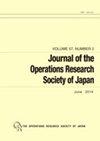一种具有非参数预测推理方法的基于成本的自适应软件更新方案
Q4 Decision Sciences
引用次数: 1
摘要
本文提出了一种估计最优软件更新进度的方法,该方法使单位时间内的预期总软件成本最小化。基于非参数预测推理(NPI)方法,我们从系统故障时间数据中通过预测生存函数推导出预测预期软件成本的上界和下界,并从具有右删失观测的系统故障时间信息中刻画了一种自适应的基于成本的软件复兴策略。在仿真实验中,我们的基于NPI的方法在预测最佳软件恢复时间方面非常有用。本文章由计算机程序翻译,如有差异,请以英文原文为准。
AN ADAPTIVE COST-BASED SOFTWARE REJUVENATION SCHEME WITH NONPARAMETRIC PREDICTIVE INFERENCE APPROACH
This paper proposes an approach to estimate an optimal software rejuvenation schedule minimizing an expected total software cost per unit time. Based on a non-parametric predictive inference (NPI) approach, we derive the upper and lower bounds of the predictive expected software cost via the predictive survival function from system failure time data, and characterize an adaptive cost-based software rejuvenation policy, from the system failure time data with a right-censored observation. In simulation experiments, it is shown that our NPI-based approach is quite useful to predict the optimal software rejuvenation time.
求助全文
通过发布文献求助,成功后即可免费获取论文全文。
去求助
来源期刊

Journal of the Operations Research Society of Japan
管理科学-运筹学与管理科学
CiteScore
0.70
自引率
0.00%
发文量
12
审稿时长
12 months
期刊介绍:
The journal publishes original work and quality reviews in the field of operations research and management science to OR practitioners and researchers in two substantive categories: operations research methods; applications and practices of operations research in industry, public sector, and all areas of science and engineering.
 求助内容:
求助内容: 应助结果提醒方式:
应助结果提醒方式:


